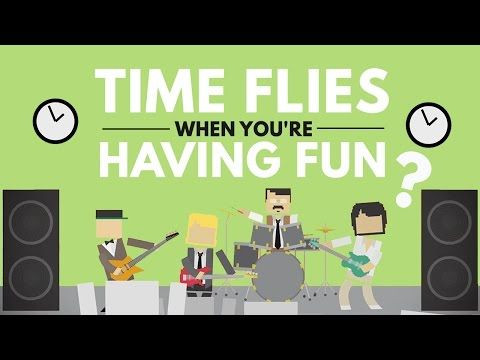Time Flies When You're Having Fun: Visual Attention Influences Time Perception During And After Activity

We all know time flies when we’re having a good time. It's not uncommon for an hour at a concert to pass by a lot faster than an hour at work or school, especially when we’re checking the time. But what influences our perception of time in these different scenarios?
In Life Noggin’s latest video, "Why Time Flies When You're Having Fun," host Pat Graziosi explains the way we perceive time passing depends on how much attention we're giving it. At a concert, for example, we're paying attention to an assortment of other things, from the music to the audience's reactions, instead of the duration of the event. So, time goes by unnoticed. However, when we are solely focused on time, it will inevitable go by slowly.
Interestingly, our perception of time tends to be different when we remember an event when compared to actually being at the event. When we think back to it, we reconstruct the order of events in our heads, and, in an attempt to judge the duration of time in which they took place, we perceive the event as lasting longer than when we were there. The more memories you have, the longer the event will have seemed in retrospect.
A 2015 study from neuroscientists at MIT and Columbia University found which part of the brain is specifically responsible for tracking time. They found specific patterns of neural activity in the lateral intraparietal cortex (LIP), which is responsible for visual attention and time intervals, when monkeys were trained to perform a time measurement task. During these tasks, researchers found distinctive neural activity during the measurement phase (the interval between “ready” and “set”) and the production phase (the interval between “set” and “go”). All cognitive and gross motor skills rely on time to a certain extent.
The scientists speculate these findings are only partially the answer to how we perceive time, and that other areas of the brain are just as responsible.
Published by Medicaldaily.com



























